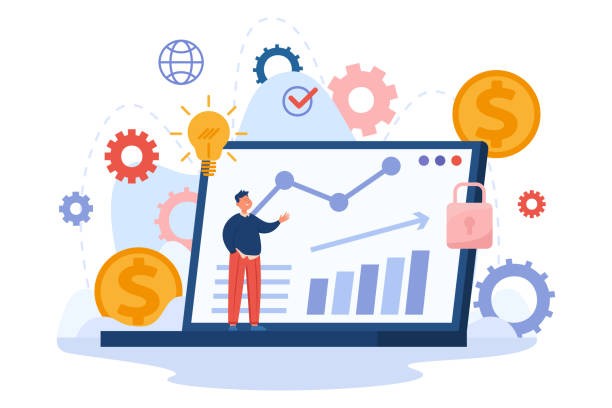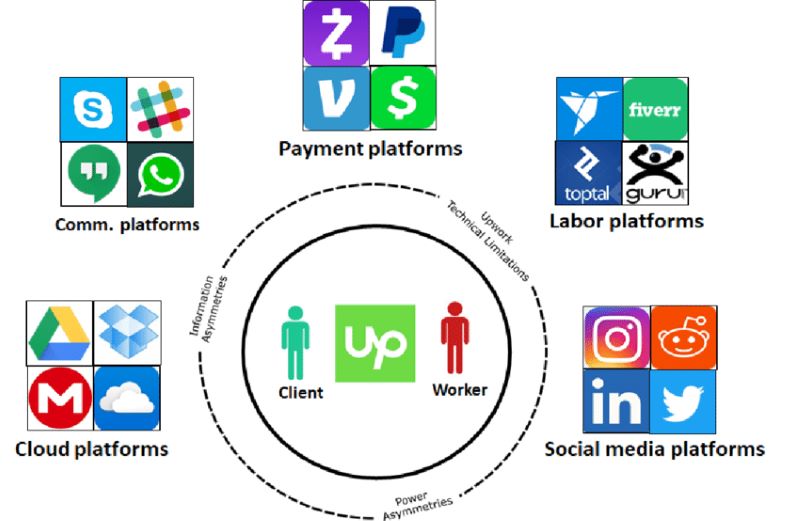Navigating the New Frontier: Every up-and-comer in the sphere of online trade faces their unique set of hurdles. But none quite like the challenges of digital economic platforms. It’s a wild ride, with new rules popping up all over and the ever-looming threats lurking in the cyber shadows. We’re all in on this digital marketplace, but are we playing fair and keeping everything above board? Join me as we take a deep dive into the choppy waters of digital commerce and chart a course through its toughest trials. From the tightrope walk of abiding by regulations to the frontline fight against cyber ploys, I’ll unpack the nuts and bolts of thriving in this booming digital bazaar. And trust me; it’s a puzzle worth solving for anyone eager to stake a claim in tomorrow’s economy.
Regulatory Landscapes and Compliance Challenges
Navigating the Complexity of Online Business Regulations
Business is fast-paced online. Laws can barely keep up with tech’s speed. Each country writes its own rules for digital trade. So, online sellers face a tough job. They must know and follow the laws in every place they do business. This means keeping up with many laws which change a lot. Failing to comply can lead to fines, or worse, a business shut-down.
Online business regulations aim to keep trade fair and safe. These rules cover a lot, from what you can sell to how you sell it. They also ensure businesses respect users’ rights and protect user data. Yet, keeping track of every change in law is no small task. For small businesses, in particular, it feels like sailing stormy seas with a tiny boat.
Regulations also target big companies to prevent unfair control of the market. Authorities want to stop few companies from ruling the whole market. This is tough for huge tech businesses. They may face antitrust investigations, where the law checks if they play fair. Do they crush competition or create chances for everyone? It’s a thin line to walk.
Data Privacy: A Top Priority for Digital Commerce
Think of your private data like money in a bank. You wouldn’t want it stolen. And that’s why data privacy is key. Online shops must keep customer info safe. People worry about who sees their data and what they do with it. A business that fails to protect data can lose customers’ trust quickly.
Laws like Europe’s GDPR set strict rules for handling personal info. Businesses must follow these or they risk big fines. It’s not easy, though. Hackers try new tricks all the time. So, e-commerce sites must fight back with strong security. They have to invest big in tech that guards customer data. This means things like encryption and secure checkouts.
Data privacy isn’t just about avoiding trouble. It builds customer trust. When folks feel safe shopping on your site, they come back. They may even tell their friends. So, it’s worth the effort to get data privacy right.
In the world of e-commerce, customer trust is gold. No trust, no buyers. Laws help build that trust by setting rules everyone must play by. But it’s up to the businesses to stay sharp. They need to keep their guard up and follow the ever-changing playbook of digital regulations. Because at the end of the day, in the online market, it’s not just about selling products. It’s about selling safely and fairly in a digital world that waits for no one.
Security and Fraud Prevention in the Digital Economy
Cybersecurity Measures to Protect Online Businesses
Online businesses face many cybersecurity threats. Hackers are clever. They find ways to break into systems and steal data. As an expert, I know a safe site keeps customers coming back. Protecting customer data is top priority.
Here’s how we do it.
First, we use strong defenses like firewalls and antivirus software. These are like guards. They block bad guys from getting in. Next, we teach everyone about safe online habits. Even one wrong click can let a hacker in.
What’s a firewall? It’s a shield that stops uninvited guests. Think of it like a locked door to your house.
Then there’s encryption. It scrambles data so snoopers can’t read it. Even if they get the data, they can’t understand it. It’s like sending a secret code that only the right person can read. This keeps credit card info safe. No one wants their card number stolen!
Last, we check for weak spots. We also run tests, called penetration tests, to find those spots before hackers do. It’s like a game of hide and seek. We look for the hiding places before the other team does.
Tackling Digital Payment Fraud and Maintaining Transaction Integrity
Now, let’s talk about dirty money tricks, like fraud. Online fraud is a big problem. Crooks try to trick systems and steal money or goods. We fight back with smart tools.
First, we use clever programs that watch for strange actions. They notice when something isn’t right. Like when someone buys a lot of things super fast. This could be fraud.
Next, we check who’s buying. Are they using a real identity or a fake one? We make sure by using special checks. This is important. It’s how you know the person paying is who they say they are.
Then we look at all our transaction rules. These rules help to stop bad payments. If a rule is broken, the payment stops. We also update these rules often. This is so we can catch new tricks by crooks.
We also work with banks and credit cards to stop fraud. They have tools to catch fishy payments too. Together, we’re a team. We’re like detectives looking for clues to stop the bad guys.
By doing all this, we make people feel safe. They trust us with their money. And when they trust us, they buy more. It’s good for them, and it’s great for business.
Keeping online businesses safe takes hard work. It’s a big world full of sneaky risks. But, we’re always getting better at guarding against them. Our goal is clear. Stop bad things before they start. Keep our digital world a place where everyone can shop, share, and connect without fear.
Fairness and Ethical Concerns in Platform Economies
Addressing Gig Economy Worker Rights and Social Security
We face big questions on caring for gig workers today. Are they getting fair rights? Are they safe if they get sick or hurt? Today, many gig workers are missing crucial support like health insurance or unemployment pay. Some workers may feel stuck. They work long hours but still struggle with bills and unexpected costs.
We must act to help them. Good steps include making new rules that give gig workers more support and rights. Universities, experts, and leaders are talking about this a lot. They want smart laws that define gig work better and make sure these workers can also get benefits like other workers do.
It’s about respect, too. Gig workers do important jobs. They drive us places, deliver food, and more. So it’s right to give them a safety net. This helps them and makes the whole economy stronger.
Mitigating Algorithmic Bias and Promoting Fair Competition
Another challenge is making sure computers are fair. Computers often decide who gets a job or a loan. But are these decisions fair? What if the computers are biased? This can harm people and create unfair competition. Bad for everyone!
Such bias happens when the data computers learn from are not fair. To fix this, businesses must check their computer systems. They must make sure the data is good and that the final decisions are fair. Experts are working on tools to find and stop these biases. It’s a big task, but it’s a must-do to keep our digital world fair.
Businesses that do this well make things better for all. Fair play wins trust from customers and workers. It makes businesses stronger for the long haul. This is how we make sure the digital economy is fair and works well for everyone.
Sustaining Growth and Trust in Digital Marketplaces
Strategies for Overcoming User Trust Issues Online
Trust is key in online markets. But earning it is tough. Here’s the deal. People fear scams and data leaks. To keep them shopping, playing, or working on your site, show you’re safe. For starters, use clear icons or badges that signal security, like lock symbols for secure checkouts. Next, be open about your privacy policy. Tell customers exactly how their data is used.
Offer great customer service as well. Be there to answer questions quickly. And always ask for feedback. It shows users you value their voice. Plus, good reviews and ratings boost trust for new users too. Finally, keep all your site info up to date. A site that looks cared for seems more trustworthy.
Balancing Scalability with Digital Service Reliability
Growth is the goal but can lead to crashes or slow service. Keep tech strong as you grow. Check your servers can handle more visitors. Then, test your site. Make sure it can take more load without breaking down. Always track your site too. Find and fix issues fast. Remember, a reliable site is one users trust.
Use experts to help. They can set up good systems to keep your service stable. Also, pay attention to what users say. If they report problems, act fast. This shows you are on top of things. And it keeps your digital service solid for all.
Growing while keeping service smooth is not easy. But with the right moves, you can do both. Focus on trust and keep your tech tight. Then watch your digital marketplace thrive.
We’ve covered key issues in today’s digital world. From tackling complex regulations in online business to prioritizing data privacy, these challenges need smart handling for success. Protecting your business from cyber threats and digital fraud is vital, too. Plus, we can’t ignore the ethical side; it’s about fair play and looking out for gig workers’ rights.
On fairness and ethics, we know the platform economy isn’t always balanced. But by fighting algorithmic bias and ensuring fair competition, we make things better for everyone. Trust and growth go hand in hand for digital marketplaces. Reliable digital services and solving trust issues will boost growth.
To sum up, being safe, fair, and smart with tech is not just nice—it’s a must. Stay sharp, stay ethical, and keep growing your digital presence with these guides in mind.
Q&A :
What Are the Common Challenges Faced by Digital Economic Platforms?
The rapid emergence of digital economic platforms presents several challenges. Issues like ensuring secure transactions, managing data privacy, and maintaining regulatory compliance are at the forefront. These platforms must also grapple with scalability and the need to keep pace with technological advancements, while providing reliable customer support and overcoming resistance from traditional sectors.
How Do Digital Economic Platforms Overcome Regulatory and Compliance Hurdles?
Navigating the complex web of regulations and compliance is a significant challenge for digital economic platforms. Staying abreast of changing laws, especially in different jurisdictions, is crucial. Successful platforms often invest in legal expertise and compliance software, and prioritize transparency and accountability to build trust with both users and regulators.
In What Ways Do Data Privacy Concerns Impact Digital Economic Platforms?
Data privacy is a critical concern for users of digital economic platforms, where vast amounts of personal information are often exchanged. Platforms must implement robust data protection measures, including encryption and secure data storage practices. Failure to do so can undermine user trust and lead to legal repercussions.
How is Customer Trust Built and Maintained on Digital Economic Platforms?
Building customer trust on digital economic platforms demands rigorous security measures, clear communication, and reliable service. Trust is fostered by delivering consistent quality, protecting user data, and offering excellent customer service. Reviews and ratings from other users can also play a significant role in establishing trustworthiness.
What Strategies Do Digital Economic Platforms Use to Manage Technical Scalability?
To manage technical scalability, digital economic platforms often employ cloud-based solutions that allow for flexible resource management. Investing in scalable architecture and continuous monitoring systems helps platforms to handle increased demand and support growth without sacrificing performance or user experience. Regular updates and embracing innovative technologies are also key to staying scalable.






